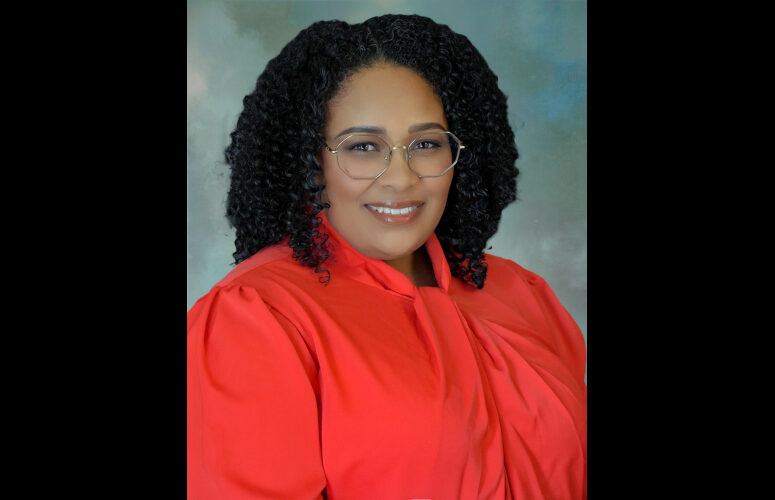
Ensuring Diverse, Equitable & Inclusive Workplaces
Businesses, healthcare and higher education institutions enhance DEI initiatives as awareness heightens.
By Irene Maslowski, Contributing Writer On Apr 6, 2022It is no surprise that the social justice events of the past two years – the Black Lives Matter movement, Asian-American hate crimes, and other inequities – have given many organizations a heightened awareness of the need to have serious conversations about diversity, equity and inclusion (DEI). For many, it has paved the way to implementing DEI programs or creating change within existing ones.
Yet, many organizations appear to be falling woefully short. While they may have good intentions – perhaps silently supporting the DEI movement, taking effective action is the required strategy.
Several New Jersey-based organizations are vigilantly working towards developing effective DEI programs beyond just making a statement. They are creating meaningful change for their organizations and for their industries as well.
The accounting profession has historically lagged behind in the diversity movement, but not necessarily because of active or intentional bias, according to industry leaders. Many accounting firms have begun to evaluate their programs and have pledged to make a commitment, seeing DEI as a priority and an important business strategy tied to the success of their companies. Among them, global accounting firm EisnerAmper has taken a lead by enriching its existing DEI program, which has garnered awards, and recently hiring Tenaya Taylor as its first DEI director.
“DEI is important for our firm, not because it is the right thing to do, but because it aligns with the mission and values of EisnerAmper,” says Taylor, a former organizational DEI leader in global pharmaceuticals. “Equity for us means that we acknowledge that everyone starts from a different place. We elevate individuals by continuously being progressive in identifying and removing unintentional barriers that may impede their access and success.”
Taylor is quick to note that ensuring equitable employee support can be tricky to achieve. “DEI is not just about race, gender and persons with disabilities. It is also about class, education, money, sexual orientation and a myriad of other attributes. Here’s where training and education come in, along with an open mindset. Having conversations that surround these matters, while difficult, is necessary. We have to be courageous, unite and express ourselves with emotional intelligence,” she says.
DEI initiatives are not new to the firm. Years ago, it initiated its DEI Council and Employee Resource Groups (ERGs) jointly coordinated by members of the firm and its executive committee. Together, they work to create an environment where individuals feel valued, respected, supported and are welcome to bring their authentic selves to the firm.
New innovations, such as gamification tools to promote inclusiveness and using speed-dating gaming concepts, have helped to boost employee morale and create a sense of belonging in the hybrid work environment. “Buddy” systems and mentoring circles have been implemented, and the firm’s new Courageous Conversations engagement series explores various topics to drive inclusion and awareness.
Colleges and universities have been at the forefront of DEI for decades, with programs such as Title IX. Yet, many programs have either fallen short or need to be re-evaluated and updated to keep up with the times.
Dr. Valerie Hayes, chief officer of diversity and inclusion at Stockton University, and ethics liaison officer at the institution, says studies reveal that most DEI programs fall short primarily because they do not address the deeper issues of discrimination and marginalization or do not view diversity as organizational change.
Recognizing this, Stockton has developed a strategic plan that specifically includes diversity and inclusion as one of six key areas. The strategic plan was developed by diverse teams in an environment of shared governance. Additionally, Stockton’s strategic priorities also include diversity and inclusion goals for which the institution’s cabinet members are accountable. Together, Stockton’s strategic plan and the cabinet’s strategic priorities take into consideration not just the needs of students and faculty, but also of staff, alumni, vendors, volunteers, parents and partners, to ensure Stockton’s commitment to diversity and inclusion supports the entire Stockton community.
Some more recent initiatives include the planning of a multicultural center due to open this fall. The project itself has engaged minority-owned and operated architect, landscape and engineering firms. Another diversity and inclusion initiative includes a year-long alumni conference on DEI.
These efforts have not gone unnoticed as Stockton recently received its fourth national Higher Education Excellence in Diversity (HEED) Award from Insight into Diversity magazine.
“True DEI means more than having a single seat at the table,” says Dr. Trina Parks, DHA, FACHE, executive vice president and chief corporate diversity and inclusion officer for RWJBarnabas Health. “For RWJBarnabas Health, it means being fully engaged into the culture, and eliminating explicit and unconscious racism, bias and discriminatory practices. DEI is not only the right thing to do; it is a business imperative that is essential to growth and sustainability.”
As part of RWJBarnabas Health’s commitment, culturally competent care delivery has been prioritized. Since 2016, the organization has recruited 10 DEI leaders, and created more than 30 Business Resource Groups, bringing employees together based on shared characteristics or life experiences. The Babs Siperstein PROUD Center at RWJ University Hospital Somerset is the first and only program of its kind in New Jersey offering specialized primary care services to the LGBTQ+ community.
RWJBarnabas Health has received recognition: as designated Leaders in LGBTQ Healthcare Equality by the Human Rights Campaign Foundation; and for its grassroots outreach efforts to decrease the spread of COVID-19 among Hispanics in Somerset County. Dr. Parks was also honored by being named to Modern Healthcare’s “Diversity Leaders to Watch” list in 2021.
Social movements aren’t going away. As the US population becomes more diverse, organizations see both necessity and advantage in expanding DEI initiatives that produce real change.
“We live, learn and work in communities and in a world rich with individuals who come from different backgrounds, cultures, histories and experiences,” comments Stockton’s Dr. Hayes. “We can shut ourselves off from those who are different from ourselves, or we can embrace the rich diversity of individuals around us and learn from each other and grow together as a community.”
To access more business news, visit NJB News Now.
Related Articles:





